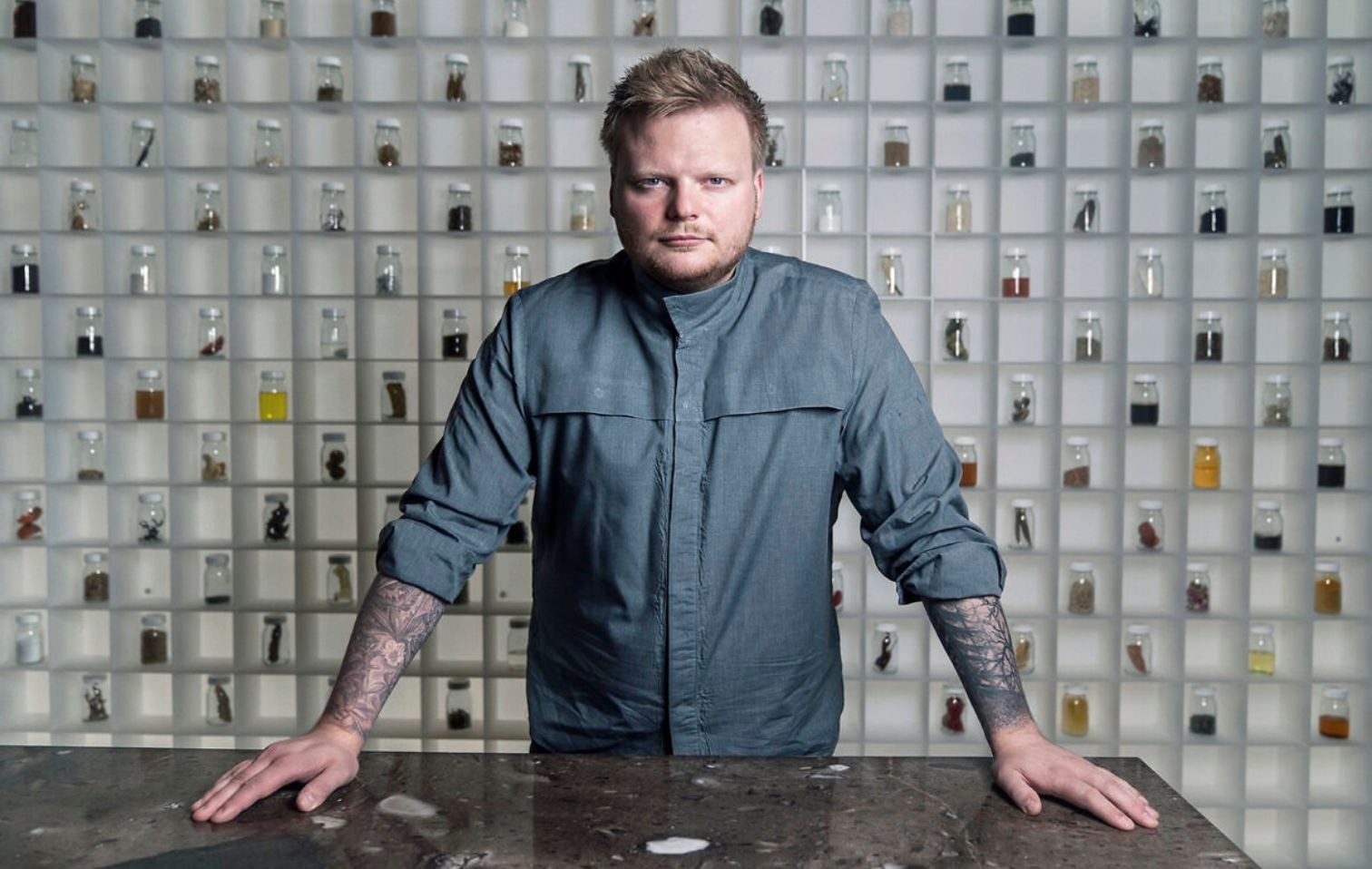The latest on Alchemist, the high-tech epicenter of the global avant-garde: here are the 7 secrets of one of the coolest restaurants in the world, from invisible hospitality to self-produced activism, from personality-based staff selection to psychological training and open-source philosophy.
In the dullness of Copenhagen's port area, no one would expect that a disused warehouse would house one of the most exclusive restaurants in the world. Yet, the grand entrance through the bronze gate, signed by Maria Rubinke with a dedication to Dante Alighieri ("I found myself within a forest dark"), marks the beginning of a disruptive gastronomic experience that is both polysensorial and socially engaged. It lasts from 4 to 6 hours and leaves guests profoundly transformed. William Drew from The World's 50 Best has identified the seven secrets of Alchemist's success, along with chef Rasmus Munk and general manager Lykke Metzger.
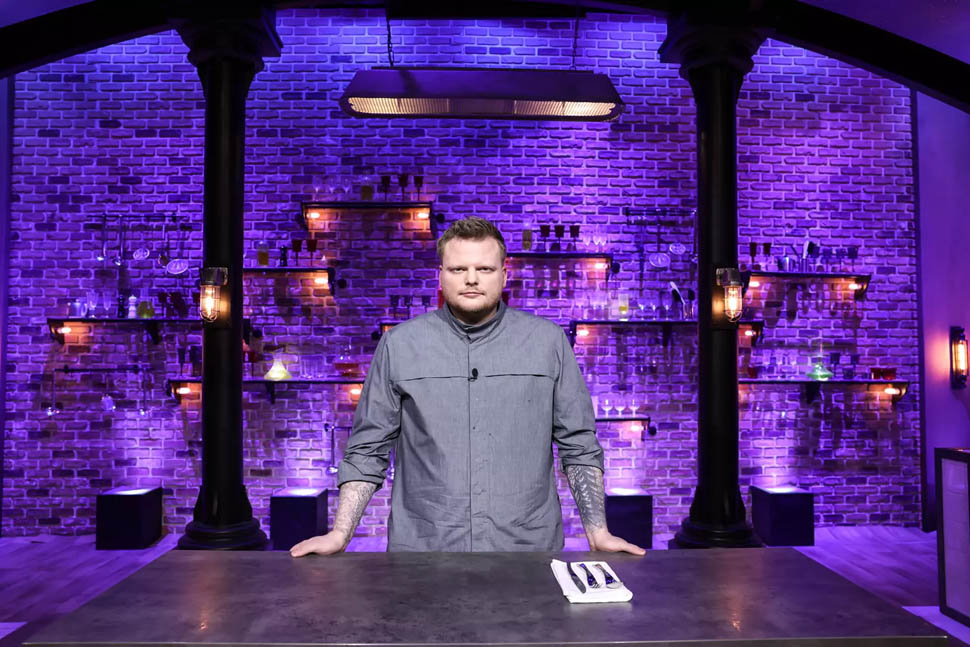
1)-Dynamic tailor-made service: It starts from the welcoming, with a brief conversation that helps establish a connection (from nationality to eye color, matched with the color of a dish). Based on the information given at the time of reservation, Metzger customizes a suitable head of the dining room to guide guests through the experience.
2)- Invisible hospitality: Guests move from the lounge to the enormous space topped with a dome where videos are projected. Here, most courses are served by waiters or chefs, all wearing the same uniform (except for the apron). This means there is no hierarchy visible to the guests, and every staff member can serve wine or comment on the dishes, thanks to extensive team building. It also means flexibility and adaptability in roles. In the case of specific sensitivities (such as sommelier tables or tea enthusiasts), the positions are rearranged on the fly. Watches and jewelry are banned to avoid distractions. The next landing is the relaxation area, where uniforms change to make the staff almost invisible in the environment.
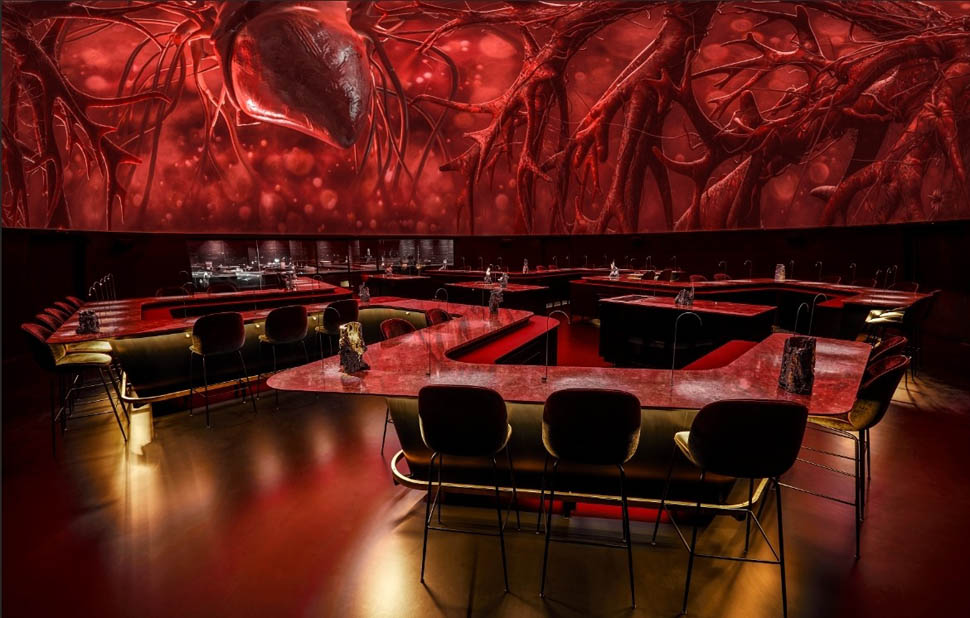
3)- Never forget the food: "All our dishes are developed in a neutral kitchen, never in the dome. Only when the food is ready, we consider the lights, dish design, and so on," assures Munk. "Food is the priority; we will never compromise. It can be challenging, but it must be good." Two new dishes, either completely new or revised, are introduced to the menu every month.
4)- Ambassadors of Social Causes: Many themes end up on the plate, from child labor to microplastics in the ocean, from battery farming to homelessness. The staff spreads awareness, armed with a hundred-page document written internally by a writer and filled with information while always respecting the guests' availability.
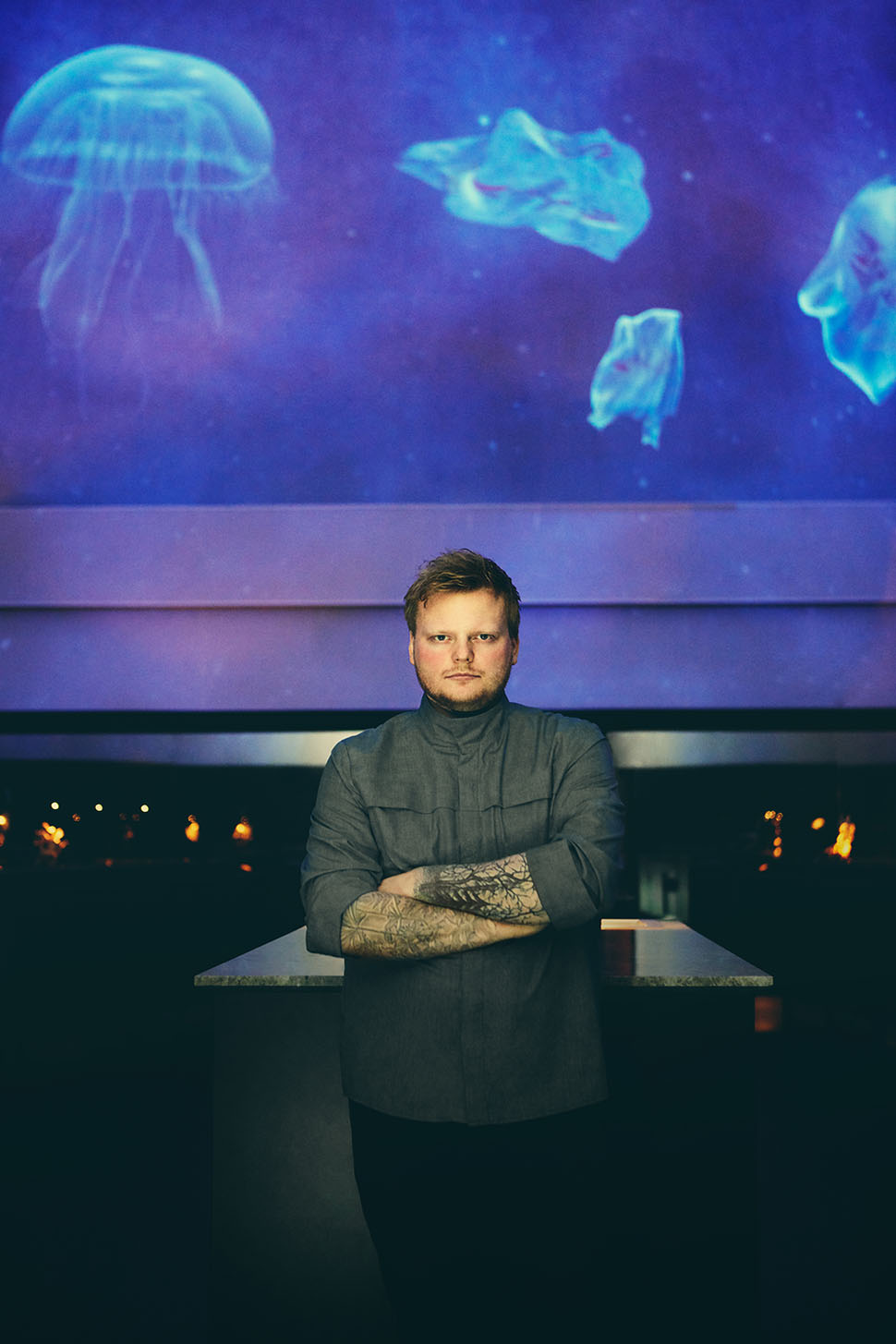
5)- Casting agents: The restaurant's dining team consists of 25 team members, representing a dozen nationalities, all internally trained within 8 weeks. They are selected based on language skills and temperament, to achieve the right mix of extroverts and "information nerds." With only four services per week (evening shifts from Tuesday to Friday), the staff works as a unified team rather than separately, enhancing learning and interchangeability. "At the end of the week, they might be tired because they give their 100%, but the staff is happy to work and grow in such an environment. The new generation doesn't just want to serve a plate of food; they engage and take pride in conveying important messages," concludes Munk.
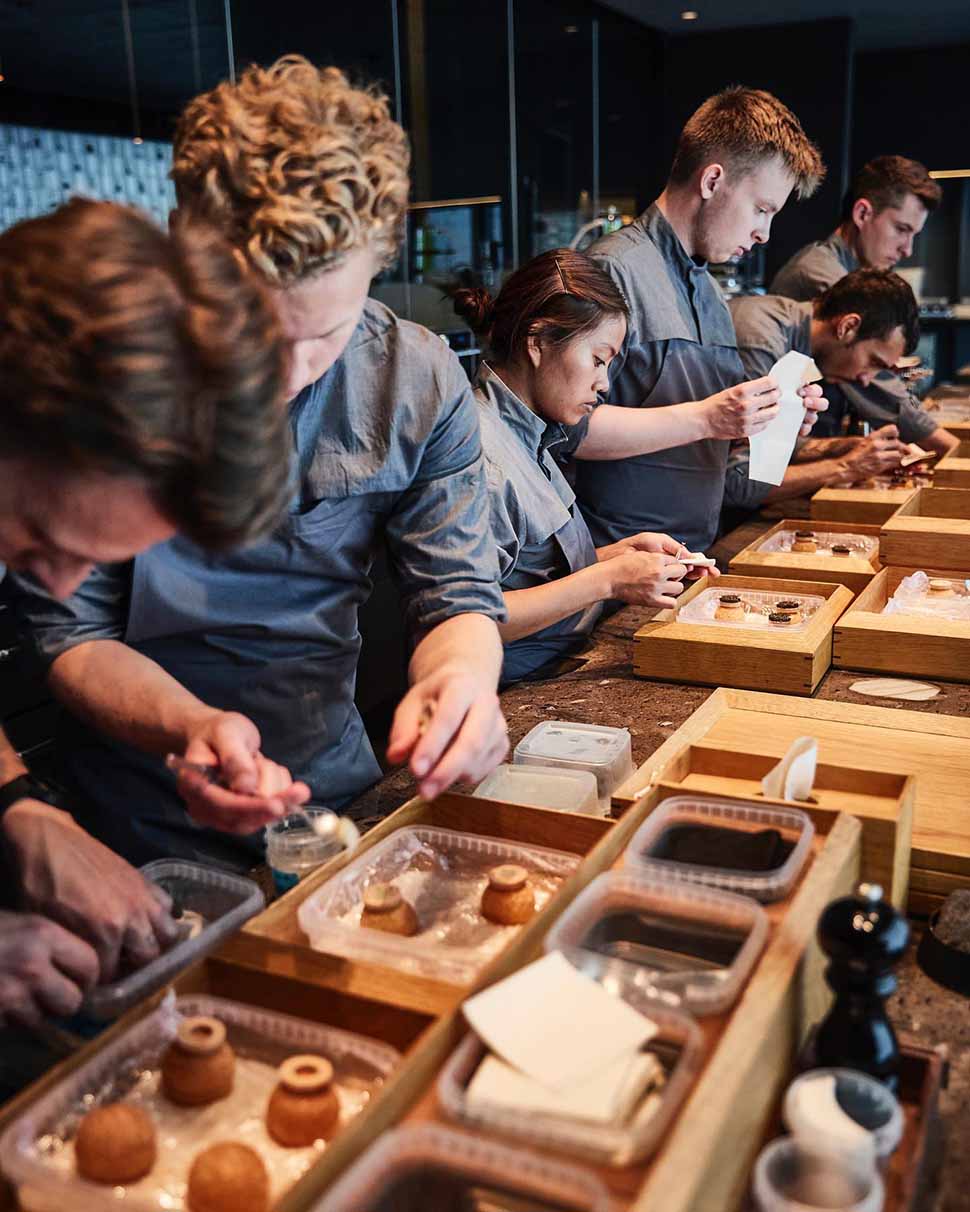
6)- Psychology, body language, coaching: Behind Alchemist, there is a multidisciplinary knowledge base, including visual artists, sound engineers, animators, composers, writers, and industrial designers. Among the recent insights is the hiring of a voice coach to evoke different effects. Then there's body language, which is recorded even in the dish's message, and most importantly, psychology, with great attention to detail. "It's interesting to leverage various disciplines and apply them in the kitchen. Last year, we focused a lot on design and architecture, previously on art and theater. Soon, we'll look more into psychology and how it can be employed in the experience."
7) - Open-source philosophy: The logic is to share knowledge and achievements through articles, scientific materials, and posts, with future plans for books and catalogs. "I hope we can inspire people to think bigger: instead of hiring another chef to position herbs perfectly on a plate, maybe an industrial designer who looks at the table and seating, something that interests the guests more."
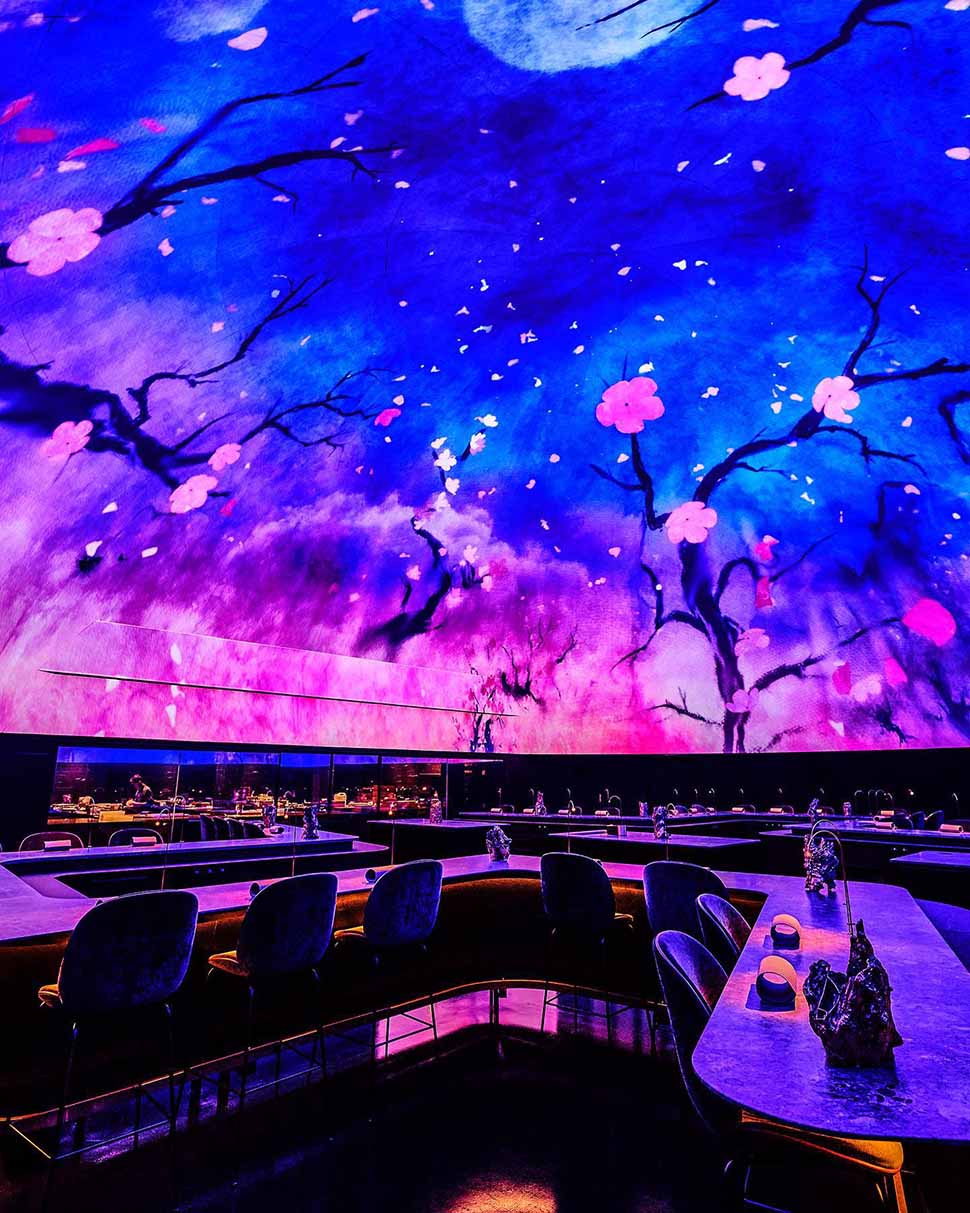
Cover photos: @Mathias Svold
Photos in the article courtesy of the restaurant
